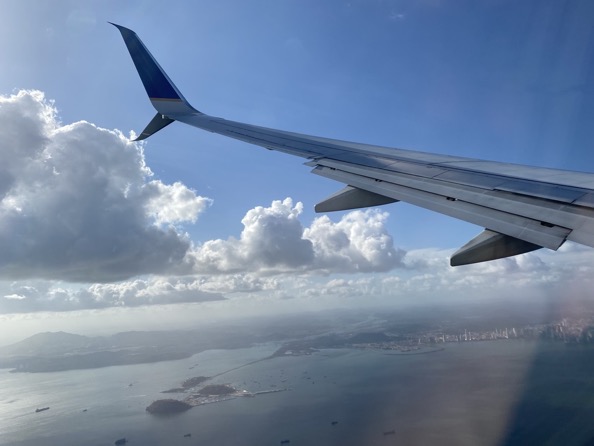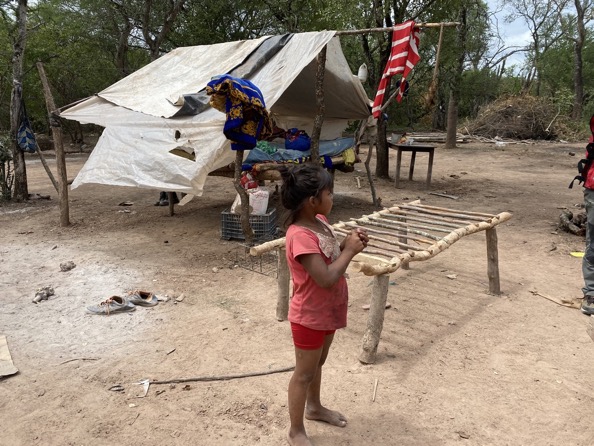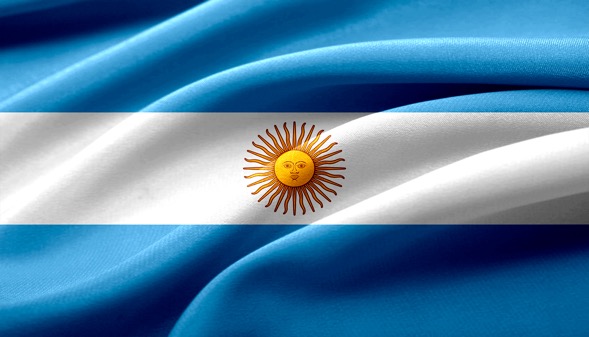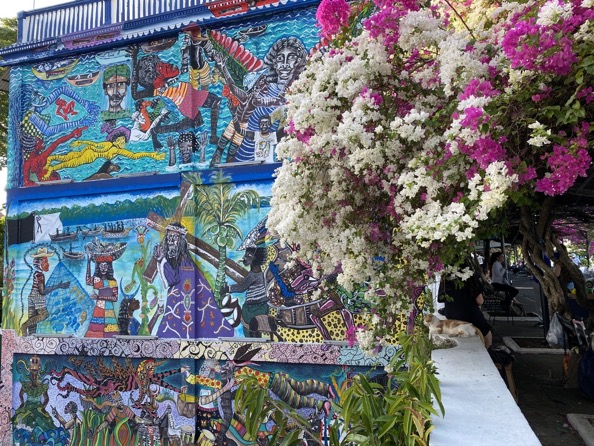In a planning mode

Panama City, February 2020
While still recovering physically and emotionally from my last trip, I am busy wrapping on recent missions to Ecuador, Bolivia, Brazil and indeed Argentina. Writing reports, reflecting on the situation, and more importantly, talking with colleagues on how we need to adjust our projects to have the best impact on people finding themselves in various humanitarian stresses. As usual, it is easier to design a project that has a quick impact (which is important), but it is much more challenging to working out how to ensure that the potential positive change that the project generates, lasts in the future, or in other words, that the change is sustainable. The trick is that we cannot and should not do it on our own. Communities, governments, private companies, NGOs, international community organisations all need to be taken into consideration in the puzzle. This is difficult to crack, as you can imagine for a various of reasons… practical, technical, and also moral. Even if there is a consensus that humanitarian crises need to be dealt with, it is less obvious how to do it and who should be in a driving force for the change… It is both interesting and frustrating in the same time.
I am also getting ready to travel to Cartagena in Colombia, where I will be presenting to EU ambassadors, EU partners from various countries in Latin America on our work when it comes to response to disasters (with a focus on civil protection work). The conference is in the middle of March, so there is not a lot of time to get ready.
Then Easter is coming, and so is a trip to Poland. I have already booked my tickets and I am very excited to be going home to visit Mum, family and friends!
Making sense of the trip to Argentina

A child at home in Salta Province, Argentina, February 2020
The trip to Argentina has left me without energy and confused. It has been a very challenging experience, physically, as we travelled a lot, trying to visit as many communities as possible, talk to as many people as we could. Some of the places are very remote and getting there is not easy, as there are no paved roads. When you add very high temperatures, and long distances, it is easy to imagine why all was tiring.
Yet, I am much more tired emotionally. Argentina proves to be one of the most unequal country, I have a chance to experience. On one side, there are privileged cities with all the comforts and luxuries of the so called 'First World', and then there are countless number of communities, mostly indigenous communities, whose poverty levels seem to have crossed any level of imagination. Communities of northern Salta, more often than not, are confronted with a constant lack of development, chronic human rights crisis, which today, also translate to acute humanitarian crisis.
Thousands of people do not have enough to eat, have no access to safe water, deal with outbreaks of water borne, mosquito borne diseases, TB, have no sanitary infrastructure. The levels of malnutrition, morbidity and mortality of children and pregnant women, contamination of the environment (every imaginable part of it), lack of healthcare, extreme food insecurity (people do go hungry)… issues are exactly the same as I know them from war-torn countries, such as South Sudan, Sudan, or Congo. Yet, we are dealing with Argentina, a peaceful democracy, with vast resources and considerable wealth. We are dealing with the country, whose cities are chic and elegant, a country that seems to work.
What has gone wrong in Argentina? Why is it that so many people need to go through the unspeakable suffering?
It is difficult to accept what I witnessed. I am struggling to make sense of it all… the differences between the 'haves' and 'non-haves' (within one country) are too large to comprehend.
As I get my mind around it, I would like to share with you some of the pictures from the trip to Argentina. I also promise, I will write more about what we are trying to do, to deal with the emergency. For now, I am signing off in need of some sleep.
A humanitarian mission to Argentina

I have just finished packing and ready to set off to Buenos Aires today.
It is my first ever trip to Argentina, the country that I have dreamt of visiting for a long time. Yet, I am not going there to admire the sights and enjoy tango… I am travelling there to visit the northern part of the country, the province of Salta, where communities are undergoing an unprecedented food security crisis.
Despite the purpose of my trip is not jolly, I am very happy to be able to travel and experience the new place, meet new people, communities and learn something new… I am ready for the lessons, whatever they may be. Wish me luck!
Assumptions can be deadly!

Casco Viejo, Panama City, Panama, February 2020
I have just gotten back to Panama from the most amazing trip to Brazil. For a week, I was visiting some of the cities in the southern part of the country, where I tried understanding the work of some of the humanitarian organisations supported by ECHO working towards provision of various services to refugees arriving to the country. The mission brought me to Sao Paulo, Curitiba and the country's capital, Brasilia and gave me a chance to look at work of some of the NGOs, UN agencies and state and municipal authorities serving the migrants (including asylum seekers and refugees) arriving and settling in the country.
I must admit that given a very poor press that Brazil is getting from the international media these days, I was very worried of what I would be confronted with what I know from many other countries, including my home country, Poland… I assumed that the atmosphere concerning refugees and migrants in general, would be filled with increasing sentiments of xenophobia, unfriendly policies and growing obstacles for the migrants to find ways to survive in the country in a dignified way.
Now, I am back to Panama, reflecting on my mission, and… I am ashamed. I am ashamed for my silly assumptions and arrogance. What I found in Brazil challenged me in the most positive way. What I learnt is that Brazil has some of the most advanced and modern refugee and migration laws. Essentially, all foreigners are welcome and protected in Brazil. The polices that the country has in place are to ensure that the arriving migrants are treated fairly and are given opportunities to thrive in the same ways, as Brazilians are. What I was told is that the migration laws are formulated with the underlying conviction of the lawmakers and the society alike that 'migration is a human right'. As a consequence, all governmental agencies (on all levels) treat migrants with utmost dignity, respect, and thrive doing whatever in their power to find solutions to the people wishing to settle down in Brazil. What was even more amazing is that these sentiments were quite common and shared by all of the people that I spoke to, from taxi drivers, random people I met in my hotel during breakfast, to employees of the NGOs, and government agencies! How refreshing and wonderful! And yes, my Brazilian partners did tell me that the system is under strain, that the integration of the huge influx of refugees from Venezuela is challenging for inadequate resources, that there are many challenges relating to the integration, coming from the Brazilians and the migrants themselves, but essentially everyone assured me that most of the people in the country, religious institutions, organisations agree that the problems should be treated as a challenge and should be resolved rather than used as an excuse to give in to racism and xenophobia. 'We are all migrants, after all' I heard countless of time from many people… If this was not enough, the positive attitudes are cherished by the refugees and other migrants. People I interviewed and spoke to me, recognised that the life was difficult for them, but also underlined that they were very grateful to the Brazilian society, and planned to do whatever they could to be able to contribute to the well being of their new communities. How humbling, how encouraging and how wonderful!
I am so grateful to Brazil, Brazilians and all the foreigners in the country for the humbling lesson and I salute them all. I am just a bit jealous that the place where I come from is so different, so much more closed and unprepared to see humanity in people who need encouragement and support to rebuild their own lives. HATS OFF BRAZIL!
On another note, I am now getting ready to travel to Argentina. Tomorrow, I am flying to Buenos Aires, and then later in the week to Salta in northern part of the country. The surroundings of Salta seem to be experiencing an unprecedented food security crisis, resulting with alarming mortality of children due to malnutrition and related health complications. As I still know too little about the situation, I will refrain from providing you more information on the crisis now, but I will certainly share with you some of my experiences and observations in a few days' time.
Sixteen years later

It has been sixteen years since my last trip to Brazil… I still remember the flight that I was taking from Angola's Luanda, my excitement that I could not hide and joy of having a chance to visit my dreamt Rio de Janeiro.
Tomorrow, I am going to Brazil again. This time around, it is for work and will be travelling to Sao Paulo, Curitiba and Brasilia. Although the circumstances are very different, I am nearly as excited as I was sixteen years ago!
Stay tuned for the report from the trip. It should appear soon!
